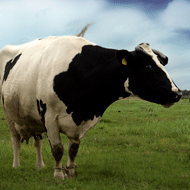Livestock industries agree to work together

"Industry stakeholders need to work together to ensure that a robust, reliable and respected data collection system is created and implemented".
Livestock industries have agreed to work together to ensure that the Food Standard Agency's (FSA) Collection and Communication of Inspection Results (CCIR) are successfully implemented across pig, poultry, beef and sheep sectors.
At a joint-sector event hosted by the pork, beef and sheep divisions of AHDB (formally known as BPEX and EBLEX), it was acknowledged that a 'one size fits all' approach across sectors will not be practical, but there are clear advantages of working together.
"Industry stakeholders need to work together to ensure that a robust, reliable and respected data collection system is created and implemented," explained Christine Walsh, AHDB Beef and Lamb's supply chain development manager.
"While the pig and poultry industries have implemented CCIR relatively successfully, there is still work to be done and the beef and sheep sectors are a long way off yet, which is concerning."
"The new data collection system presented by the FSA is an exciting development. However, in all sectors it's clear that further research needs to be completed first.
"We need to better understand the relevant data that needs to be captured in that process. From there we can make decisions about how to better communicate the information back to producers, and the technology will follow."
Ouafa Doxon, AHDB Pork's health information and food safety coordinator, added: "Over £60million is lost to the English beef, sheep and pig sectors every year through animal illness such as pneumonia, pleurisy and liver fluke. By communicating post-mortem inspection results to farmers, it will enable them to take action and improve their herd/flock health and productivity."
To help move the industry forward, the AHDB have agreed to set up an FSA-led industry working group to outline a list of priority diseases that sheep and beef producers will find useful to have feedback on via the CCIR process - similar to the work done by the pig sector.



 HMRC has invited feedback to its communications regarding the employment status of locum vets and vet nurses.
HMRC has invited feedback to its communications regarding the employment status of locum vets and vet nurses.